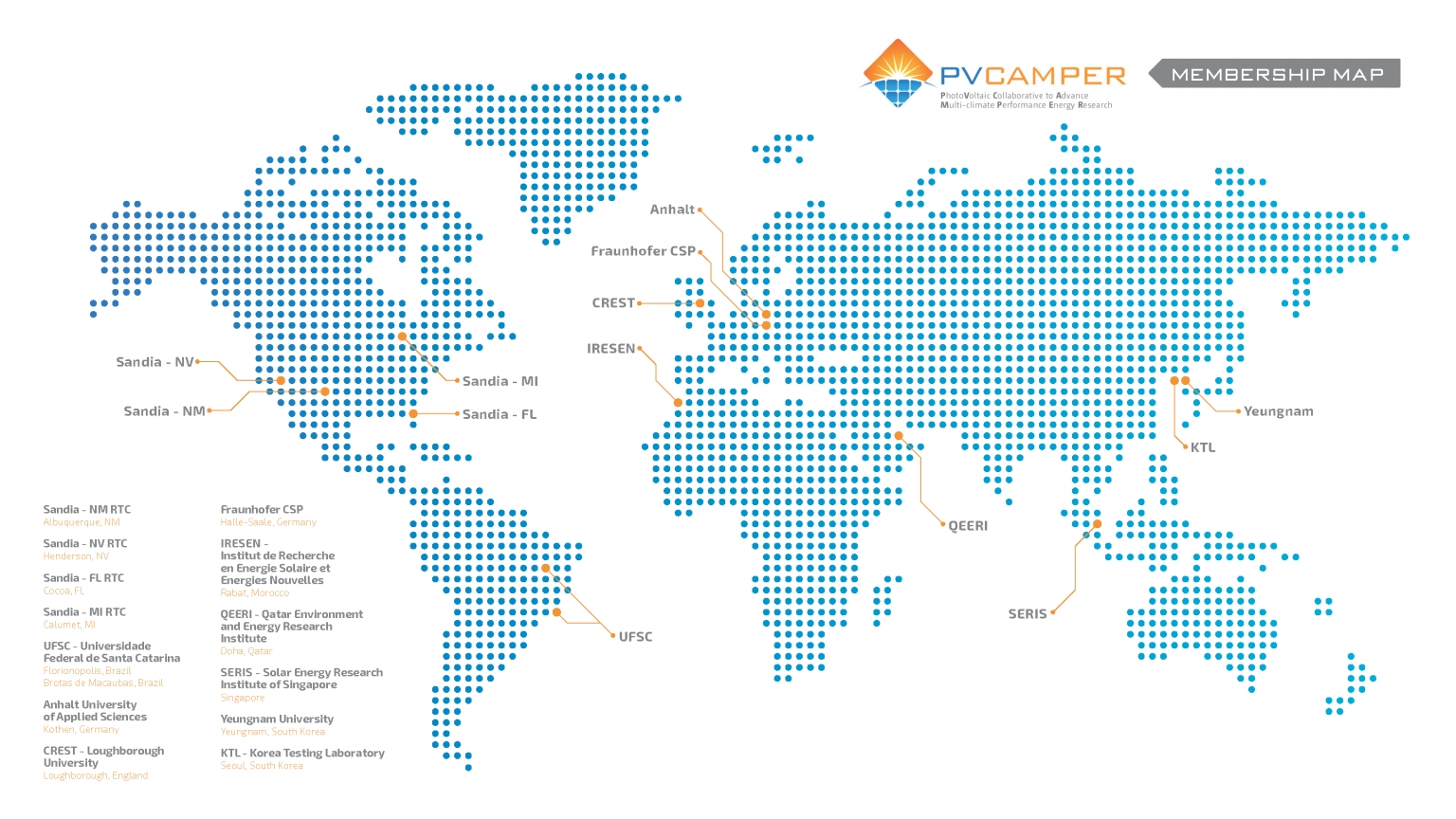Fraunhofer IMWS
PV CAMPER platform generates photovoltaics data from diverse environments and climates worldwide
More data, more collaboration, more opportunities for photovoltaics: A new platform for investigating the performance and reliability of solar systems in different environments and climate zones worldwide will provide an important basis for an even broader and more efficient use of solar energy. The Fraunhofer Center for Silicon Photovoltaic CSP in Halle (Saale) is among the founding members of the recently launched PV CAMPER platform.

The performance of a photovoltaic system depends decisively on its location. In addition to the intensity and duration of solar radiation, many other factors influence the performance, service life or the probability of defects occurring. With the unique platform "Photovoltaic Collaborative to Advance Multi-Climate Performance and Energy Research (PV CAMPER)", highly accurate meteorological and photovoltaic performance data from geographically and climatically diverse locations are available to an international community of researchers.
"Linking and sharing high-quality data is elemental to advancing photovoltaic research and opening up new markets and applications for solar technologies. We are creating one of the world's largest and most useful databases of quality-assured, comparable photovoltaic performance data and enabling their trustworthy exchange," says Prof. Ralph Gottschalg, head of Fraunhofer CSP, who has been appointed chairman of PV Camper, which has just released its Annual Report.
Data from various test facilities is transferred daily to the cloud database now available, which can be accessed by members of the network. They also have access to a common baseline characterization, operating and management protocols, as well as offers for joint research and development activities and for network events. The broad expertise of the participating institutions can be used, for example, to improve the design and optimization of PV systems for specific operating environments, including for industrial users, based on the data.
"We are very excited to be part of the PV CAMPER community. The partnership positions us among renowned institutions around the world and enables us to share knowledge and build capacity in energy research that will accelerate the global transition to a solar-intensive future. This is because collaboration will enable us to better transfer research results to different climates and optimize novel technologies specifically for use there," says Gottschalg. In particular, Fraunhofer CSP will contribute its expertise in the areas of soiling (contamination of solar modules), climate-related PV efficiency factors, and quality assurance, while using the platform's capabilities to further develop them.
"The collective data will help design and optimize PV systems for specific operating environments, improving quality assurance for the entire PV industry. PV Camper covers five climate zones, advancing the solar industry worldwide. This is also an important contribution in the global transition to a low-carbon economy," says Dr. Laurie Burnham of Sandia National Laboratories, who was instrumental in advancing the platform during its founding phase and has now been named Vice Chair of PV Camper. Other Vice Chairs are Sebastian Dittmann (Anhalt University of Applied Sciences, Germany) and Aline Kirsten (Universidade Federale de Santa Catarina, Brazil).
The following research institutions have joined forces for PV CAMPER:
- Sandia National Laboratories (USA)
- Universidad Federal de Santa Catarina UFSC (Brazil)
- Anhalt University of Applied Sciences (Germany)
- Fraunhofer Center for Silicon Photovoltaics CSP (Germany)
- Centre for Renewable Energy Systems Technology CREST (United Kingdom)
- Institut de Recherche Energie Solaire et Energies Nouvelles IRESEN (Morocco)
- Qatar Environment & Energy Research Institute (Qatar)
- Solar Energy Research Institute of Singapore SERIS (Singapore)
- Yeungnam University (South Korea)
- Korea Testing Laboratory KTL (South Korea)